In recent years, the popularity of cashews has soared, making them a highly sought-after commodity in the global market. Cashews, known for their rich, creamy flavor and crunchy texture, have become a staple in the diets of individuals worldwide. As the demand for healthy, plant-based snacks continues to rise, the market for bulk cashews is experiencing unprecedented growth. This article will delve into the nutritional benefits of cashews, explore their versatile uses in various industries, and outline the lucrative business opportunities that bulk cashew trading presents. Nutritional Benefits of Cashews: Cashews are not only delicious; they also offer numerous health benefits. Packed with vitamins, minerals, and healthy fats, cashews are considered a nutritional powerhouse. Here are some key features: 1. Heart-Healthy: Cashews contain monounsaturated fats, which have been linked to reducing the risk of heart disease. They are also low in cholesterol and high in magnesium and potassium, minerals that support healthy cardiovascular function. 2. Rich in Nutrients: Cashews are a good source of essential vitamins and minerals, including vitamin E, K, B6, and minerals like copper, zinc, and selenium. These nutrients contribute to overall well-being, supporting everything from bone health to immune function. 3. Antioxidant Properties: Cashews contain antioxidants such as flavanols and proanthocyanidins, which combat oxidative stress and inflammation. These properties can play a role in reducing the risk of chronic diseases such as diabetes, cancer, and neurodegenerative disorders. 4. Weight Management: Despite their higher calorie content, research suggests that regular consumption of cashews can support weight management. The combination of healthy fats, fiber, and protein in cashews helps promote satiety and reduce overall calorie intake. Versatile Uses of Cashews: Cashews have a wide range of applications in various industries, making them highly versatile. Here are some popular uses of cashews: 1. Culinary Delights: Cashews are a popular ingredient in both savory and sweet dishes. They are used in various forms, including whole, chopped, powdered, or as a base for sauces, spreads, and vegan cheeses. Cashews can also be roasted, salted, ground into butter, or used for raw vegan desserts. 2. Snack Industry: As the demand for healthier snack options rises, cashews have become a favorite choice among consumers. They are often consumed as roasted and flavored whole nuts or incorporated into trail mixes and energy bars, providing a nutritious and satisfying snack option. 3. Plant-Based Dairy Alternatives: Cashews are one of the primary sources used in plant-based dairy alternatives like cashew milk, cream, and yogurts. Their creamy texture and mild flavor make them an ideal substitute for milk, making it a preferred choice for individuals with lactose intolerance or those following a vegan lifestyle. 4. Personal Care Products: Cashews are also utilized in the manufacturing of personal care products such as soaps, shampoos, and moisturizers. Extracted oils and butter from cashews are known for their moisturizing properties, making them popular ingredients in cosmetics. Profitable Business Opportunities: The surge in global demand for cashews has resulted in a lucrative market for bulk cashew trading. Here are some compelling reasons why investing in bulk cashews can be a profitable business opportunity: 1. Growing Market Demand: The demand for cashews continues to rise due to the increasing popularity of healthy snacking and plant-based diets. Cashews are no longer confined to specialty shops and are widely available in mainstream grocery stores and online platforms, further driving their market growth. 2. Competitive Pricing: Cashews can be sourced from various countries, including major producers like India, Vietnam, and Africa. This availability allows for competitive pricing, creating opportunities to cater to a wide range of customers with different budget constraints. 3. Expanding Product Applications: The versatility of cashews means there is a growing demand in different industries. As plant-based diets become more mainstream, the demand for cashew-based dairy alternatives, snacks, and personal care products is expected to rise, presenting substantial growth potential in these sectors.
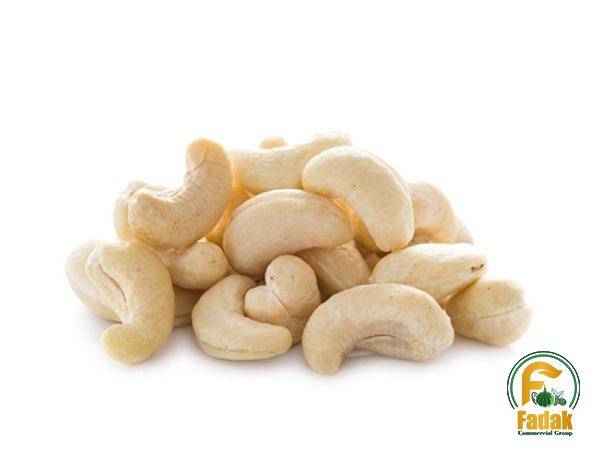
nut
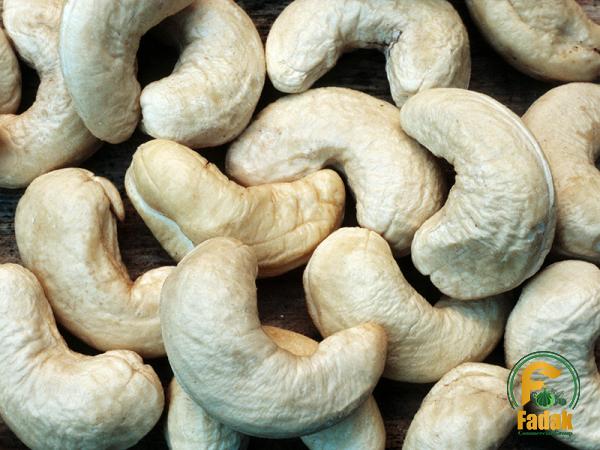 4. Sustainability and Ethical Considerations: Cashew cultivation promotes sustainable agriculture practices, as cashew trees grow in arid regions and require low water consumption. Moreover, investing in ethically sourced cashews, supporting fair trade practices and responsible farming, can enhance the business’s reputation and appease conscious consumers. 5. Global Trade Opportunities: Cashews are a globally traded commodity, offering opportunities for international trade partnerships. Developing connections with key producers and importers can help forge long-term relationships and secure a share in this growing market. Challenges and Mitigation Strategies: While the bulk cashew industry offers significant growth potential, businesses must be aware of potential challenges and implement appropriate mitigation strategies. Some key points to consider include: 1. Supply Chain Management: Managing the supply chain efficiently is crucial to ensure a consistent and high-quality supply of cashews. Businesses should establish relationships with reliable suppliers, maintain regular quality checks, and diversify sources to mitigate risks associated with crop failure or market fluctuations in specific regions. 2. Price Volatility: Cashew prices can be volatile due to various factors, including climate change, political unrest, and currency fluctuations. Businesses should stay informed about market factors, hedge against price fluctuations by engaging in hedging arrangements, and have strategies in place to adjust pricing accordingly. 3. Quality Control: Maintaining quality standards is essential in a competitive market. Businesses should invest in quality control measures, establish proper storage facilities to prevent spoilage, and comply with safety and hygiene regulations to ensure customer satisfaction and maintain a strong market position. Conclusion: Bulk cashews offer an excellent opportunity for businesses looking to invest in a growing and versatile commodity. With their countless nutritional benefits, diverse applications, and increasing global demand, cashews have become a staple in various industries. By understanding the market dynamics, mitigating potential challenges, and promoting sustainability, businesses can position themselves to capitalize on the opportunities presented by the bulk cashew industry. A well-informed, strategic approach in this vibrant market can yield profitable returns while contributing to the growing trend of healthier, plant-based lifestyles. I. Cashew Market Overview and Trends: The bulk cashew industry has witnessed significant growth over the years, driven by various factors such as changing consumer preferences, increased awareness of the health benefits of cashews, and the rising popularity of plant-based diets. As consumers seek healthier snacking alternatives, cashews have emerged as a top choice due to their nutritional profile and versatility. Major producers such as India, Vietnam, and Africa dominate the market, with India being the largest exporter of cashews globally. II. Health Benefits and Nutritional Profile of Cashews: Cashews offer a range of health benefits due to their rich nutrient content. They are a good source of protein, dietary fiber, and various vitamins and minerals, including vitamin E, magnesium, and copper. These nutrients play a vital role in supporting immune function, promoting bone health, and facilitating energy production. Additionally, the monounsaturated fats found in cashews have been linked to lower levels of bad cholesterol and a reduced risk of heart disease. III. Cashews in the Food Industry: The food industry has embraced the versatility of cashews, incorporating them into a wide range of products. Cashews are used in both savory and sweet recipes, adding a unique flavor, texture, and creaminess. They are commonly used as a base for vegan cheese, milk, and cream alternatives, providing a creamy texture that closely resembles dairy products. In baked goods, cashews are used in the form of meal or flour, adding a nutty flavor and enhancing the texture.
4. Sustainability and Ethical Considerations: Cashew cultivation promotes sustainable agriculture practices, as cashew trees grow in arid regions and require low water consumption. Moreover, investing in ethically sourced cashews, supporting fair trade practices and responsible farming, can enhance the business’s reputation and appease conscious consumers. 5. Global Trade Opportunities: Cashews are a globally traded commodity, offering opportunities for international trade partnerships. Developing connections with key producers and importers can help forge long-term relationships and secure a share in this growing market. Challenges and Mitigation Strategies: While the bulk cashew industry offers significant growth potential, businesses must be aware of potential challenges and implement appropriate mitigation strategies. Some key points to consider include: 1. Supply Chain Management: Managing the supply chain efficiently is crucial to ensure a consistent and high-quality supply of cashews. Businesses should establish relationships with reliable suppliers, maintain regular quality checks, and diversify sources to mitigate risks associated with crop failure or market fluctuations in specific regions. 2. Price Volatility: Cashew prices can be volatile due to various factors, including climate change, political unrest, and currency fluctuations. Businesses should stay informed about market factors, hedge against price fluctuations by engaging in hedging arrangements, and have strategies in place to adjust pricing accordingly. 3. Quality Control: Maintaining quality standards is essential in a competitive market. Businesses should invest in quality control measures, establish proper storage facilities to prevent spoilage, and comply with safety and hygiene regulations to ensure customer satisfaction and maintain a strong market position. Conclusion: Bulk cashews offer an excellent opportunity for businesses looking to invest in a growing and versatile commodity. With their countless nutritional benefits, diverse applications, and increasing global demand, cashews have become a staple in various industries. By understanding the market dynamics, mitigating potential challenges, and promoting sustainability, businesses can position themselves to capitalize on the opportunities presented by the bulk cashew industry. A well-informed, strategic approach in this vibrant market can yield profitable returns while contributing to the growing trend of healthier, plant-based lifestyles. I. Cashew Market Overview and Trends: The bulk cashew industry has witnessed significant growth over the years, driven by various factors such as changing consumer preferences, increased awareness of the health benefits of cashews, and the rising popularity of plant-based diets. As consumers seek healthier snacking alternatives, cashews have emerged as a top choice due to their nutritional profile and versatility. Major producers such as India, Vietnam, and Africa dominate the market, with India being the largest exporter of cashews globally. II. Health Benefits and Nutritional Profile of Cashews: Cashews offer a range of health benefits due to their rich nutrient content. They are a good source of protein, dietary fiber, and various vitamins and minerals, including vitamin E, magnesium, and copper. These nutrients play a vital role in supporting immune function, promoting bone health, and facilitating energy production. Additionally, the monounsaturated fats found in cashews have been linked to lower levels of bad cholesterol and a reduced risk of heart disease. III. Cashews in the Food Industry: The food industry has embraced the versatility of cashews, incorporating them into a wide range of products. Cashews are used in both savory and sweet recipes, adding a unique flavor, texture, and creaminess. They are commonly used as a base for vegan cheese, milk, and cream alternatives, providing a creamy texture that closely resembles dairy products. In baked goods, cashews are used in the form of meal or flour, adding a nutty flavor and enhancing the texture.
Specifications of nut
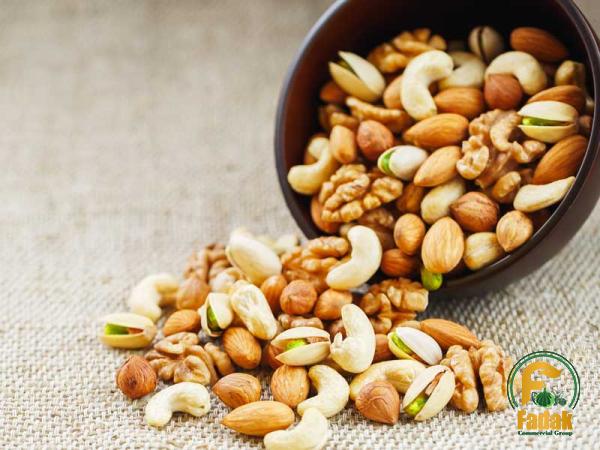 IV. Cashews in Snack Production: The increasing demand for healthy snacks has propelled the popularity of cashews as a go-to option. Cashews are a favorite ingredient in trail mixes, energy bars, and granolas, providing a satisfying crunch and a nutritious boost. Roasted and flavored cashews offer a delicious savory snack option, with flavors ranging from simple salted to more adventurous varieties like chili lime or honey-roasted. The snack industry’s emphasis on clean labels and natural ingredients has further contributed to the growth of the bulk cashew market. V. Cashews in Personal Care Products: Cashews’ moisturizing properties make them a popular ingredient in personal care products. Cashew butter or oils are used in cosmetics and skincare items such as soaps, shampoos, lotions, and moisturizers. These products are known for their ability to nourish and hydrate the skin, making cashew-based personal care items appealing to consumers looking for natural options. VI. Cashews in International Trade: The global market for cashews offers lucrative trade opportunities for businesses. Developing connections with key producers and importers can foster long-term partnerships and ensure a consistent supply of high-quality cashews. Additionally, diversifying sourcing locations and exploring new markets can help mitigate the risks associated with supply chain disruptions or sudden price fluctuations in specific regions. VII. Sustainability and Ethical Considerations: As sustainability and ethical practices gain traction, businesses investing in bulk cashews have an opportunity to align with these values. The cultivation of cashews supports sustainable agriculture, as cashew trees can thrive in arid regions with low water requirements. Businesses can opt for ethically sourced cashews, supporting fair trade practices that benefit farmers and workers. Demonstrating a commitment to sustainability and ethical sourcing can enhance a company’s reputation and appeal to an increasingly conscious consumer base. VIII. Quality Control and Food Safety: Maintaining high-quality standards is crucial for businesses operating in the bulk cashew industry. Implementing rigorous quality control measures throughout the supply chain ensures that only premium cashews reach consumers. Regular quality checks, proper storage facilities, and compliance with safety and hygiene regulations are essential to prevent spoilage, contamination, and ensure customer satisfaction. IX. Industry Challenges and Strategies: The bulk cashew industry is not without challenges. Factors such as climate change, political instability, and currency fluctuations can impact cashew prices and supply.
IV. Cashews in Snack Production: The increasing demand for healthy snacks has propelled the popularity of cashews as a go-to option. Cashews are a favorite ingredient in trail mixes, energy bars, and granolas, providing a satisfying crunch and a nutritious boost. Roasted and flavored cashews offer a delicious savory snack option, with flavors ranging from simple salted to more adventurous varieties like chili lime or honey-roasted. The snack industry’s emphasis on clean labels and natural ingredients has further contributed to the growth of the bulk cashew market. V. Cashews in Personal Care Products: Cashews’ moisturizing properties make them a popular ingredient in personal care products. Cashew butter or oils are used in cosmetics and skincare items such as soaps, shampoos, lotions, and moisturizers. These products are known for their ability to nourish and hydrate the skin, making cashew-based personal care items appealing to consumers looking for natural options. VI. Cashews in International Trade: The global market for cashews offers lucrative trade opportunities for businesses. Developing connections with key producers and importers can foster long-term partnerships and ensure a consistent supply of high-quality cashews. Additionally, diversifying sourcing locations and exploring new markets can help mitigate the risks associated with supply chain disruptions or sudden price fluctuations in specific regions. VII. Sustainability and Ethical Considerations: As sustainability and ethical practices gain traction, businesses investing in bulk cashews have an opportunity to align with these values. The cultivation of cashews supports sustainable agriculture, as cashew trees can thrive in arid regions with low water requirements. Businesses can opt for ethically sourced cashews, supporting fair trade practices that benefit farmers and workers. Demonstrating a commitment to sustainability and ethical sourcing can enhance a company’s reputation and appeal to an increasingly conscious consumer base. VIII. Quality Control and Food Safety: Maintaining high-quality standards is crucial for businesses operating in the bulk cashew industry. Implementing rigorous quality control measures throughout the supply chain ensures that only premium cashews reach consumers. Regular quality checks, proper storage facilities, and compliance with safety and hygiene regulations are essential to prevent spoilage, contamination, and ensure customer satisfaction. IX. Industry Challenges and Strategies: The bulk cashew industry is not without challenges. Factors such as climate change, political instability, and currency fluctuations can impact cashew prices and supply.
buy nut
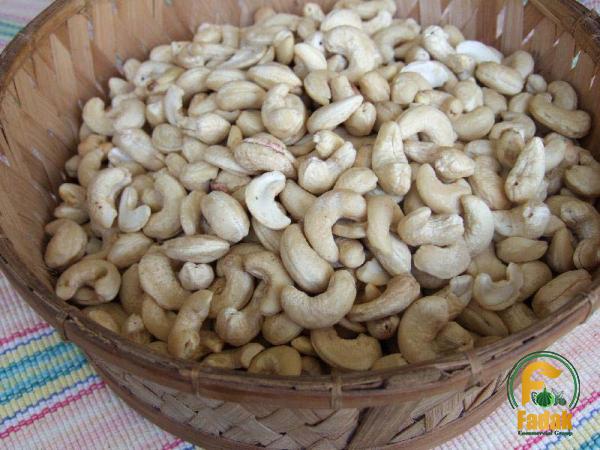 To mitigate these challenges, businesses should stay informed about market factors and engage in risk management strategies such as hedging arrangements and diversification of suppliers, countries, or regions. Adapting to changing market conditions and maintaining flexibility can help businesses navigate through uncertainties and ensure resilience in the industry. X. Marketing and Branding Strategies: Implementing effective marketing and branding strategies is essential for businesses looking to establish a strong presence in the bulk cashew market. Highlighting the nutritional benefits of cashews, promoting unique product applications, and engaging with target consumers through social media and digital platforms can help create brand awareness and loyalty. Collaboration with influencers, participation in industry events, and offering innovative packaging options can further enhance market visibility. XI. Future Outlook and Growth Potential: The future of the bulk cashew industry looks promising, with continued growth projected in the coming years. As consumers become more health-conscious and seek sustainable, plant-based alternatives, the demand for cashews is expected to rise. Furthermore, ongoing research and development in the food industry are likely to uncover new applications for cashews, fostering product innovation and expanding market opportunities. Conclusion: Bulk cashews offer a lucrative and sustainable business opportunity in a rapidly growing market. With their nutritional benefits, versatility, and increasing demand across various industries, cashews have established themselves as a sought-after commodity. By understanding market trends, implementing quality control measures, and embracing sustainability practices, businesses can position themselves for success in the bulk cashew industry. With the right strategies and a focus on customer needs, cashew traders can tap into the potential of this versatile nut and enjoy long-term profitability and growth.
To mitigate these challenges, businesses should stay informed about market factors and engage in risk management strategies such as hedging arrangements and diversification of suppliers, countries, or regions. Adapting to changing market conditions and maintaining flexibility can help businesses navigate through uncertainties and ensure resilience in the industry. X. Marketing and Branding Strategies: Implementing effective marketing and branding strategies is essential for businesses looking to establish a strong presence in the bulk cashew market. Highlighting the nutritional benefits of cashews, promoting unique product applications, and engaging with target consumers through social media and digital platforms can help create brand awareness and loyalty. Collaboration with influencers, participation in industry events, and offering innovative packaging options can further enhance market visibility. XI. Future Outlook and Growth Potential: The future of the bulk cashew industry looks promising, with continued growth projected in the coming years. As consumers become more health-conscious and seek sustainable, plant-based alternatives, the demand for cashews is expected to rise. Furthermore, ongoing research and development in the food industry are likely to uncover new applications for cashews, fostering product innovation and expanding market opportunities. Conclusion: Bulk cashews offer a lucrative and sustainable business opportunity in a rapidly growing market. With their nutritional benefits, versatility, and increasing demand across various industries, cashews have established themselves as a sought-after commodity. By understanding market trends, implementing quality control measures, and embracing sustainability practices, businesses can position themselves for success in the bulk cashew industry. With the right strategies and a focus on customer needs, cashew traders can tap into the potential of this versatile nut and enjoy long-term profitability and growth.

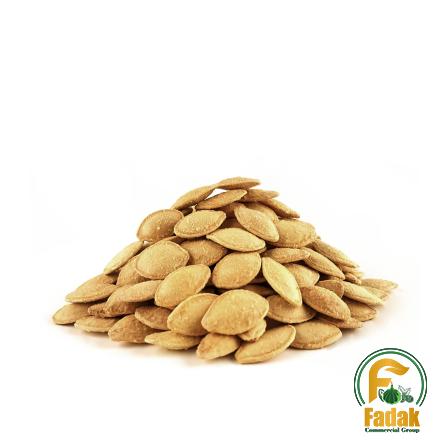
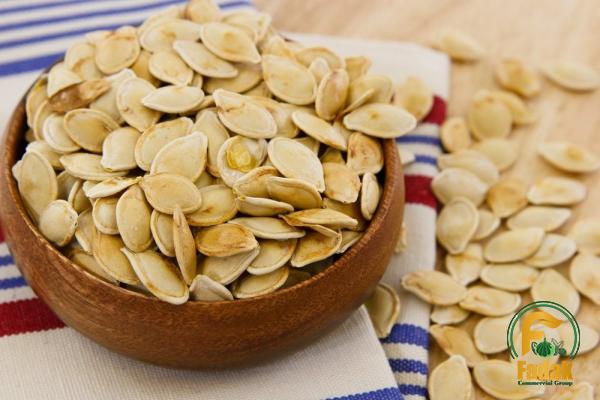
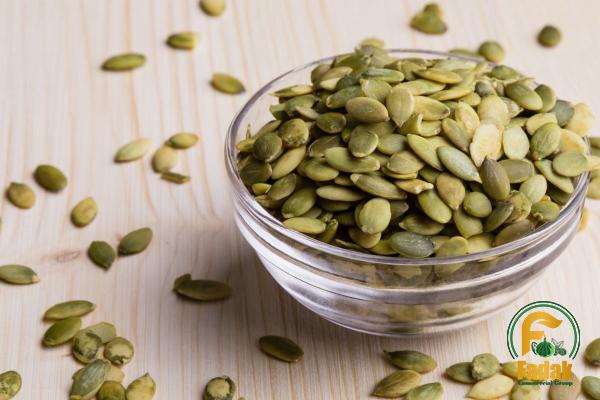
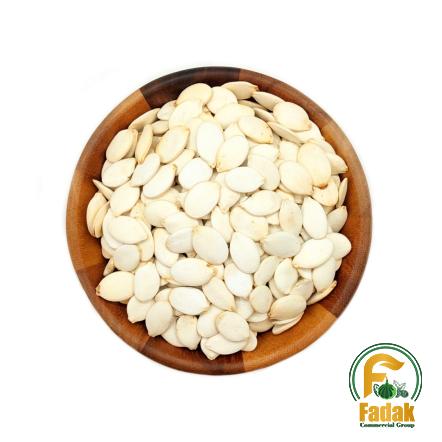
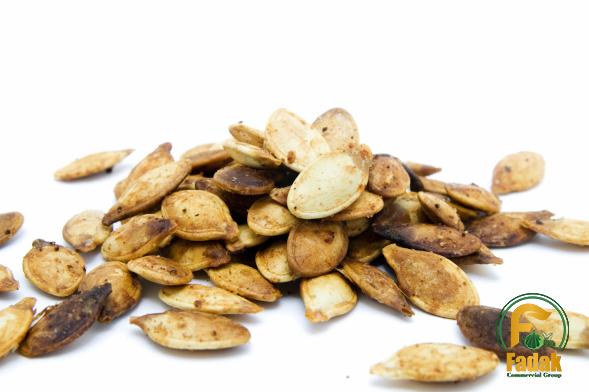
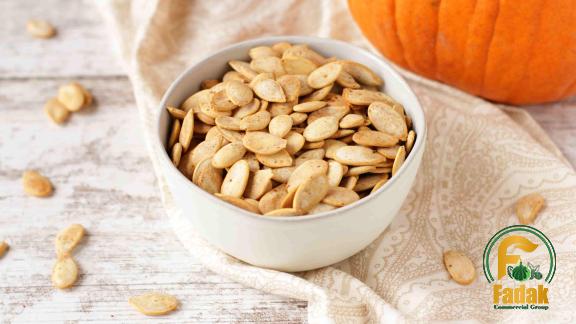
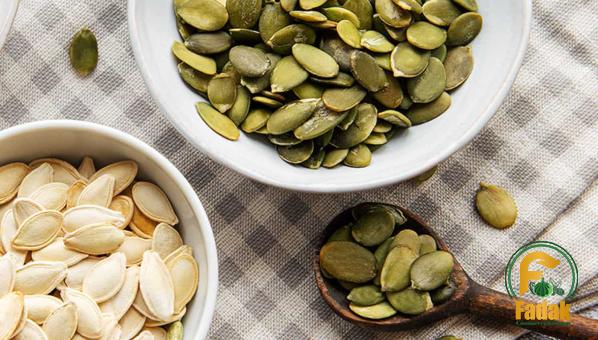
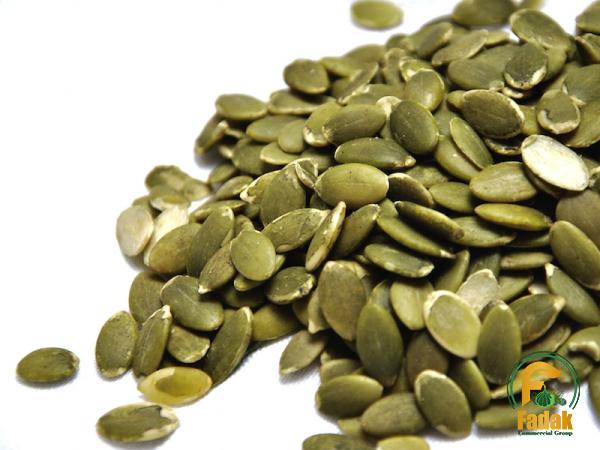

Your comment submitted.